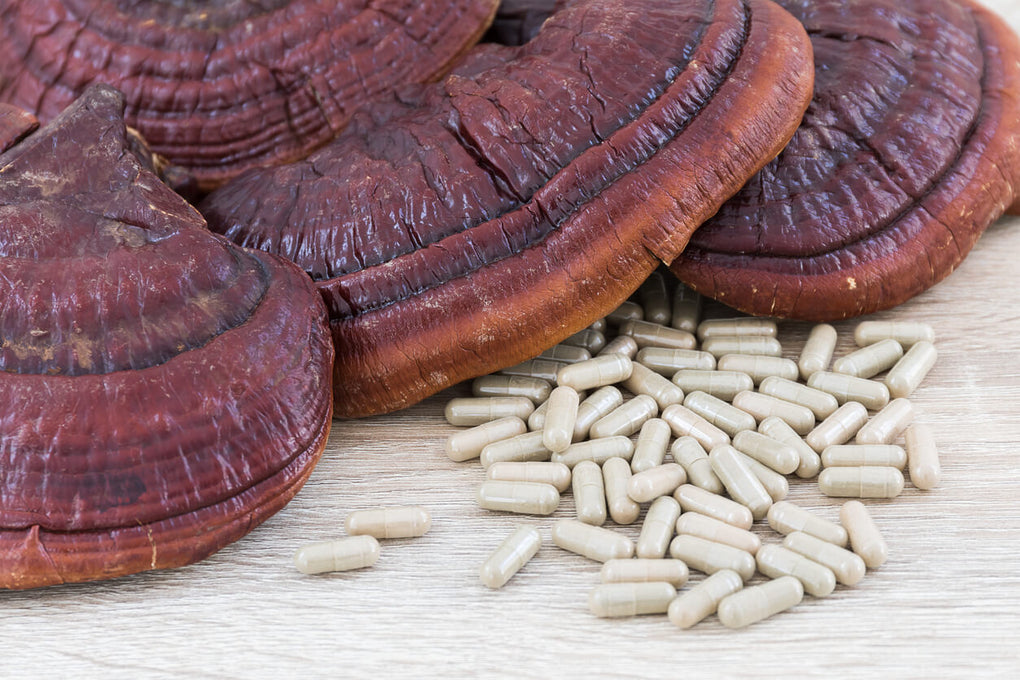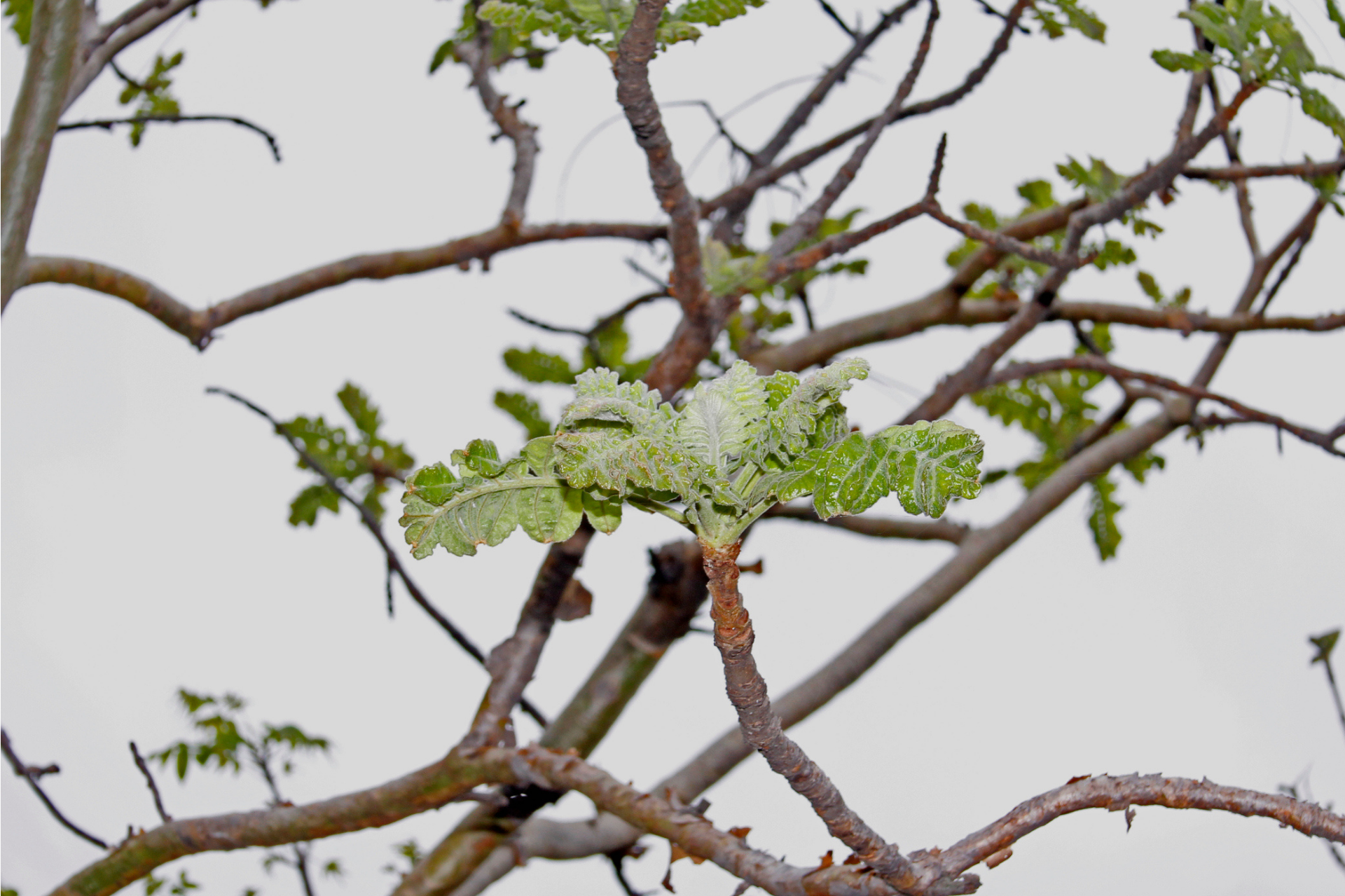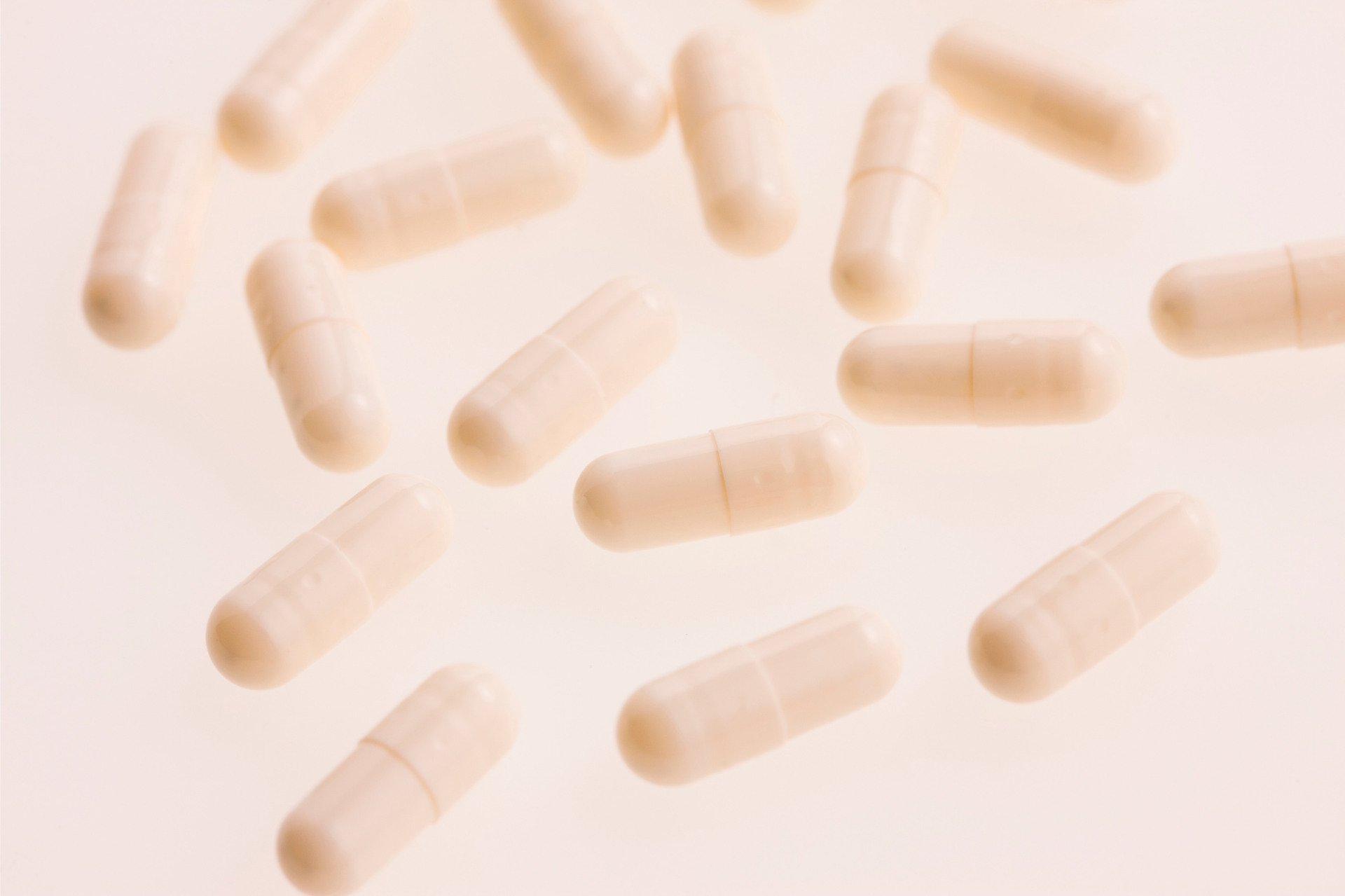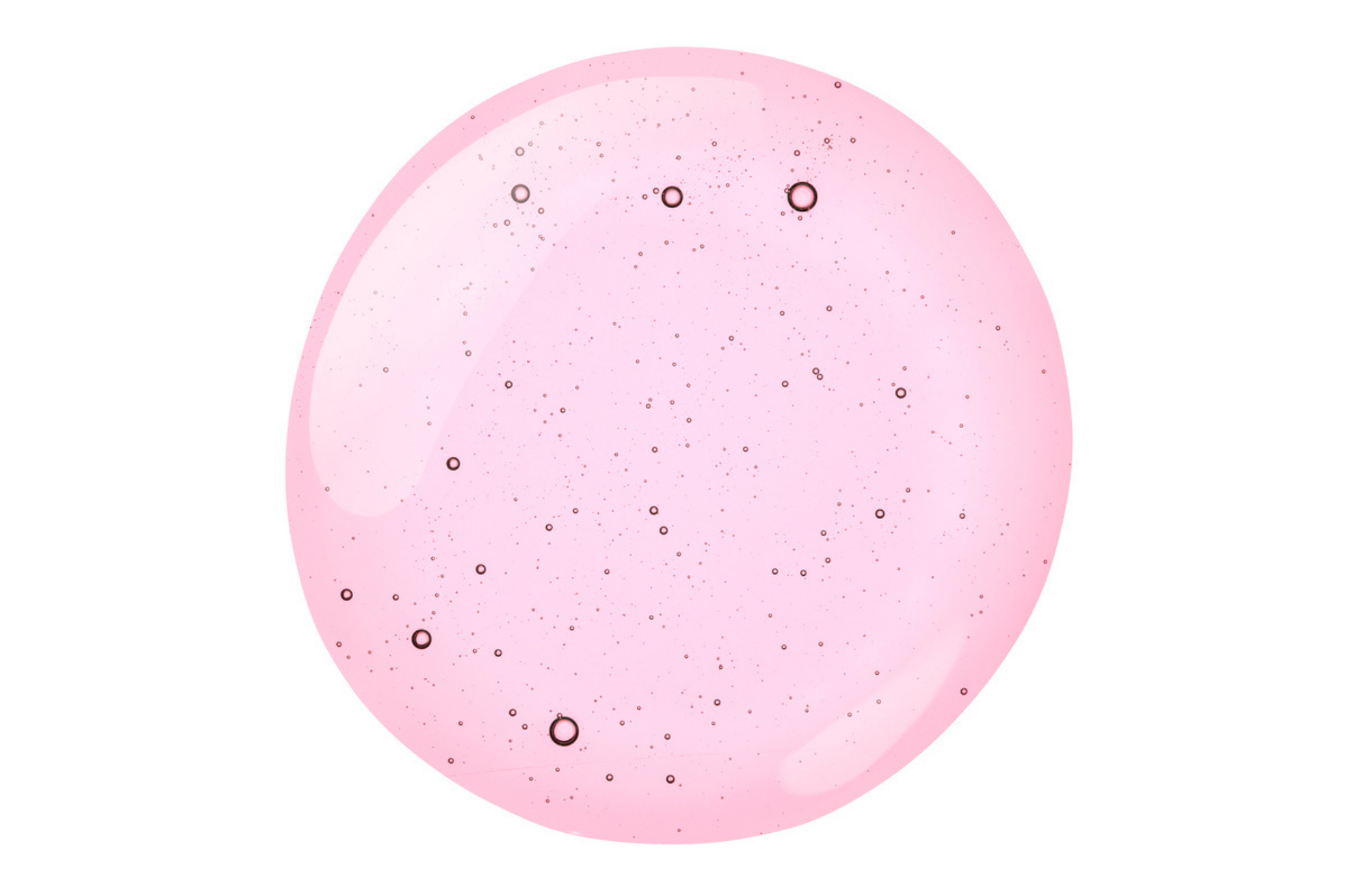Mushroom Guide Part One: Reishi
9th May 2018 / Ingredients
Mushroom Guide Part One: Reishi
Jonathan Levin

Reishi’s nickname gives it a lot to live up to. Also known as ‘the mushroom of immortality’ it has been used as to reduce stress and create calm for thousands of years. Once reserved for the wealthy in ancient Chinese and Japanese society, it is now accessible to anyone seeking its adaptogenic and health boosting properties.
Reishi boasts an appealing list of benefits, but before you rush to add it to your next stir-fry, bear in mind that reishi is made of more than 90% indigestible fibre, has the texture of wood, and a taste that can be best described as intensely bitter. While some hardcore mushrooms enthusiasts won’t let this stop them from adding reishi to soups, or boiling it into a tea, for those with less sturdy constitutions reishi can thankfully be found in a range of supplements, either on its own, or included to enhance the overall effectiveness of the formula.
Despite being known for a host of health benefits, much of the research around reishi focuses on two key factors; its ability to work as an adaptogen, and its ability to boost the immune system and ward of illness.
Reishi the adaptogen
The word adaptogen refers to a unique group of herbal ingredients that are known for their ability to adapt their function according to the body's specific needs. They primarily assist in the bodies response to stress; helping manage the hormonal response in a natural and controlled manner. As well as protecting against stress, adaptogens also typically have anti-toxic, anti-oxidative, and anti-inflammatory components.
One of the best analogies for understanding adaptogens is a thermostat. When someone’s adrenal system is overworked, adaptogens work to moderate stress responses and bring them back to an acceptable level. When someone is feeling sluggish and lethargic, adaptogens help bring energy levels up to a reasonable point. How they accomplish this is adjusted to the situation at hand.
Reishi, in particular, is unique among medicinal mushrooms in that it has the ability to calm and support nerve function. For this reason, reishi is typically utilised by people experiencing stress, anxiety, or insomnia. This is also the reason we include it in our Joints, Night and Relax complexes.
Google searches for adaptogens have doubled in the last two years, showing that the western world is starting to take an interest in these stalwarts of eastern medicine and Ayurveda. Other examples of adaptogens include Ginseng, Rhodiola, Tulsi (Holy Basil), and Ashwagandha.
In general, for a herb or mushroom to be considered an adaptogen it must meet three criteria
- It’s nontoxic: It’s safe for everyone
- It’s nonspecific: It improves the body's overall resistance to stress, not just one particular organ or function
- It’s balancing: It acts in response to the current state of the body
Reishi the immune booster
Reishi, shiitake, and maitake mushrooms are proven antivirals. They are used in the treatment of a wide variety of conditions; from colds to malaria. Their ability to moderate the immune system comes primarily from the presence of complex sugar molecules called beta-glucans. Beta-glucans can increase DNA and RNA in the bone marrow, where the cells that support a healthy body's immune system (like lymphocytes) are produced. The combination of compounds in mushrooms can also aid in neuron transmission, metabolism, and the transport of nutrients and oxygen. As well as beta-glucans, reishi mushrooms contain polysaccharides, flavonoids and triterpenes.
Most people, when they find themselves feeling under the weather, are likely to reach for well-known immunity boosters like vitamin c. The potential benefits of mushrooms in this area are still widely unknown to the general public, despite a wealth of scientific study to back them up. The following is just a sample of the studies that have proven reishi’s immune superhero status:
- Reishi inhibits fungus growth up to 58% in 5 different fungal pathogens (reference)
- Reishi, when combined with antibiotics increased the antimicrobial activity much more than antibiotics alone (reference)
- Reishi extract can reduce and inhibit four kinds of allergic responses
- Reishi extract significantly enhanced wound healing activity (reference)
- Reishi extract demonstrates potent antimalarial activity while at the same time protecting against liver damage (reference)
From The Blog
-

1st March 2022 / Health / Ingredients
Benefits of Boswellia for joint health
Boswellia might just be the best kept secret for supporting long term joint health, want to find out some of the key benefits of Boswellia? Look no further, let's delve right in! Boswellia is a sp...
Read article -

1st March 2022 / Health / Ingredients
Why magnesium is the wonder mineral for performance
Magnesium is probably one of the most important nutrients for feeling your best every day, yet it’s not talked about often enough. It’s commonly deficient in our diets, with a 2018 study finding th...
Read article -

19th March 2021 / Health / Ingredients
What is hyaluronic acid?
Hyaluronic acid is something of a buzz word when it comes to skin. You’ll find it in skin creams, serums and masks but what actually is it, and how is it good for your skin? We’ve included this mir...
Read article



